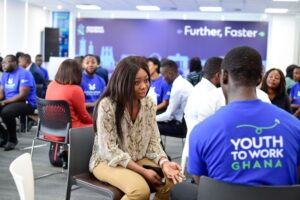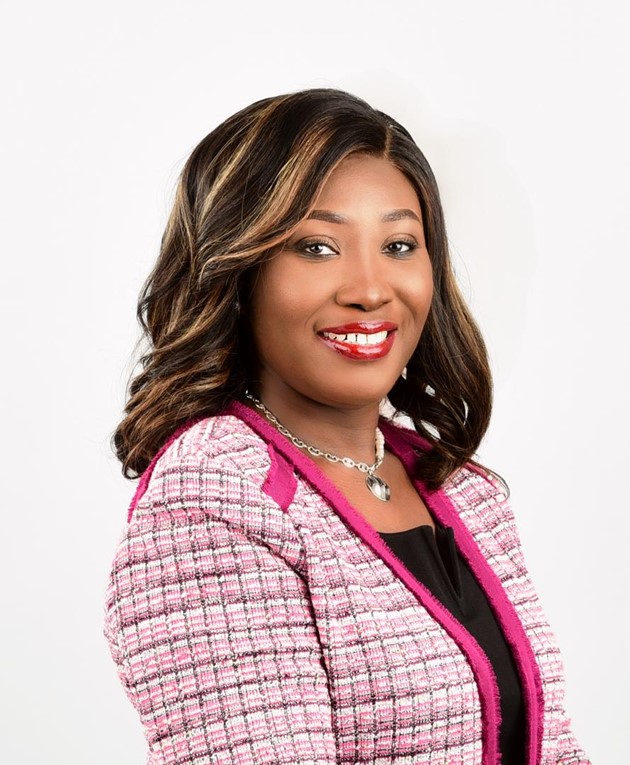By Asiedua ADDAE
In Africa today we face a unique opportunity. This single landmass of over 50 countries that is home to over 1 billion people holds immense potential.
Ghana, for example, has just under 40% of its population between the ages of 15-35. Experts have even referred to this budding demographic as an extremely valuable resource which can significantly drive economic growth.
As the world rapidly changes through the power of technology, the next generation is crucial to our fortunes as a nation and our place in the global marketplace.

Globally, 15 July is marked as World Youth Skills Day, commemorating the immense potential of young people to build a brighter future for themselves and their families.
However, for too many young people in our country, that potential remains untapped. They face daunting barriers, from inadequate skills development opportunities to deeply entrenched social and cultural biases that hinder their access to finance and growth prospects.
When we fail to invest in the potential of all our youth, we limit Ghana’s capacity for innovation and growth.
At Standard Chartered, we believe that true and lasting prosperity can only be achieved when everyone, irrespective of background or socio-economic circumstances, has an equal opportunity to succeed.
Coupled with the Bank’s Purpose – To Drive Commerce and Prosperity through our Unique Diversity, this belief underpins our commitment to Futuremakers, our youth economic empowerment initiative which aims to help disadvantaged young people learn, earn and grow.
Launched in 2019 Futuremakers has reached a total of over 45,000 young people in Ghana. Our community programmes which target disability, gender and financial inclusion, focuses on three key areas: education, employability and entrepreneurship.

Hamdia, a 21-year-old smallholder farmer in a small rural community, has achieved remarkable success in her community, where about a quarter of the adults are engaged in farming.
Inspired by her parents, who were also farmers, Hamdia was determined to build a future for herself in agri-business despite not having formal education. To this point, she had relied on traditional farming methods and worked on her family’s small piece of land, which limited her capacity for growth.
Hamdia’s journey took a transformative turn when she joined the Youth Employability Skills programme. Through this initiative, she learned how to connect with large agri-processing businesses near her town.
Reflecting on her experience, Hamdia shared, “Thanks to Futuremakers, I am now gainfully employed as a farm officer with a manufacturing company. This opportunity allows me to fulfil my dream of farming on a large scale.”
Her story is testament to the impact of youth programmes in empowering young individuals to achieve their aspirations and contribute significantly to their communities. It serves as a powerful illustration of the very real potential that lies dormant within Ghana’s young people.
The Youth Employability Skills programme under Futuremakers, implemented by Enactus Ghana, resulted in over 28,000 youth being trained in entrepreneurial and employability skills. From these, 237 businesses have been directly started and 118 have seen expansion.
The jobs they have gone on to create run into the thousands. This is how they are becoming architects of their own destinies and drivers of Ghana’s economic engine.
Another success story has been the Girls’ Employability Skills Project, where hands-on training was provided to 1,250 girls and women in the Greater Accra, Northern, Ashanti, and Western Regions.
Selected from different schools, they were taught to independently make, clean and care for reusable sanitary kits to improve girls’ access to effective, sustainable, affordable, eco-friendly, and safe menstruation products during the pandemic. Each participant produced one packet of the reusable pads, enough to meet the sanitary needs of a girl for over a year.
Our Youth To Work programme is a structured four-month work placement Business Development Services (BDS) initiative to strengthen the business performance of small and growing businesses (SGBs). To date, 216 graduates of the programme have been placed in 133 SBGs. Over 4,500 young people through active citizen workshops have been reached.
Futuremakers is not about charity. Rather, it is about transformation, finding our path from potential to prosperity with the aim of impacting the lives of young people and our communities.
Recently, we have launched Ready for Inclusive Sustainable Employment and Entrepreneurship (RISE/E) programme. This three-year programme will be implemented by Challenges Ghana and Sightsavers, who will work together to develop vibrant, growing, employability pathways for young people and strengthen microbusinesses, supporting entrepreneurs with (and without) disabilities to grow their businesses, access finance, and stimulate job creation.
Our focus is to support businesses that drive inclusive and sustainable growth, tackling critical challenges in key areas like agriculture, education, and healthcare. By investing in women and persons living with disability, demographics traditionally marginalised and overlooked, we’re promoting social equity while unlocking a powerful and often untapped engine for economic development.
This World Youth Skills Day, let’s create a future for entrepreneurship that is, by necessity, inclusive. Ghana’s young people, brimming with talent, resilience, and fresh perspectives, are poised to lead the charge – but only if we equip them with the right skills, resources, and opportunities.
Asiedua Addae is the Head Corporate Affairs, Brand & Marketing, Standard Chartered Bank Ghana PLC










